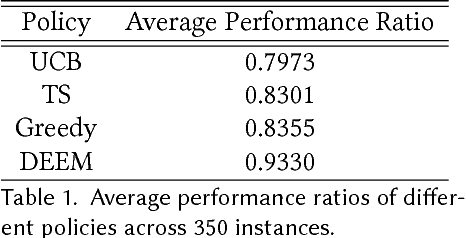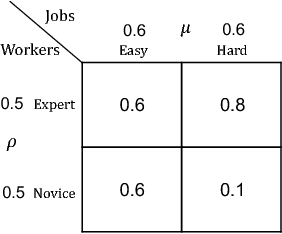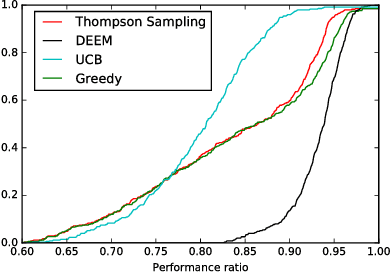Matching while Learning
Paper and Code
Oct 01, 2018


We consider the problem faced by a service platform that needs to match supply with demand, but also to learn attributes of new arrivals in order to match them better in the future. We introduce a benchmark model with heterogeneous workers and jobs that arrive over time. Job types are known to the platform, but worker types are unknown and must be learned by observing match outcomes. Workers depart after performing a certain number of jobs. The payoff from a match depends on the pair of types and the goal is to maximize the steady-state rate of accumulation of payoff. Our main contribution is a complete characterization of the structure of the optimal policy in the limit that each worker performs many jobs. The platform faces a trade-off for each worker between myopically maximizing payoffs (exploitation) and learning the type of the worker (\emph{exploration}). This creates a multitude of multi-armed bandit problems, one for each worker, coupled together by the constraint on the availability of jobs of different types (capacity constraints). We find that the platform should estimate a shadow price for each job type, and use the payoffs adjusted by these prices, first, to determine its learning goals and then, for each worker, (i) to balance learning with payoffs during the "exploration phase", and (ii) to myopically match after it has achieved its learning goals during the "exploitation phase."
 Add to Chrome
Add to Chrome Add to Firefox
Add to Firefox Add to Edge
Add to Edge